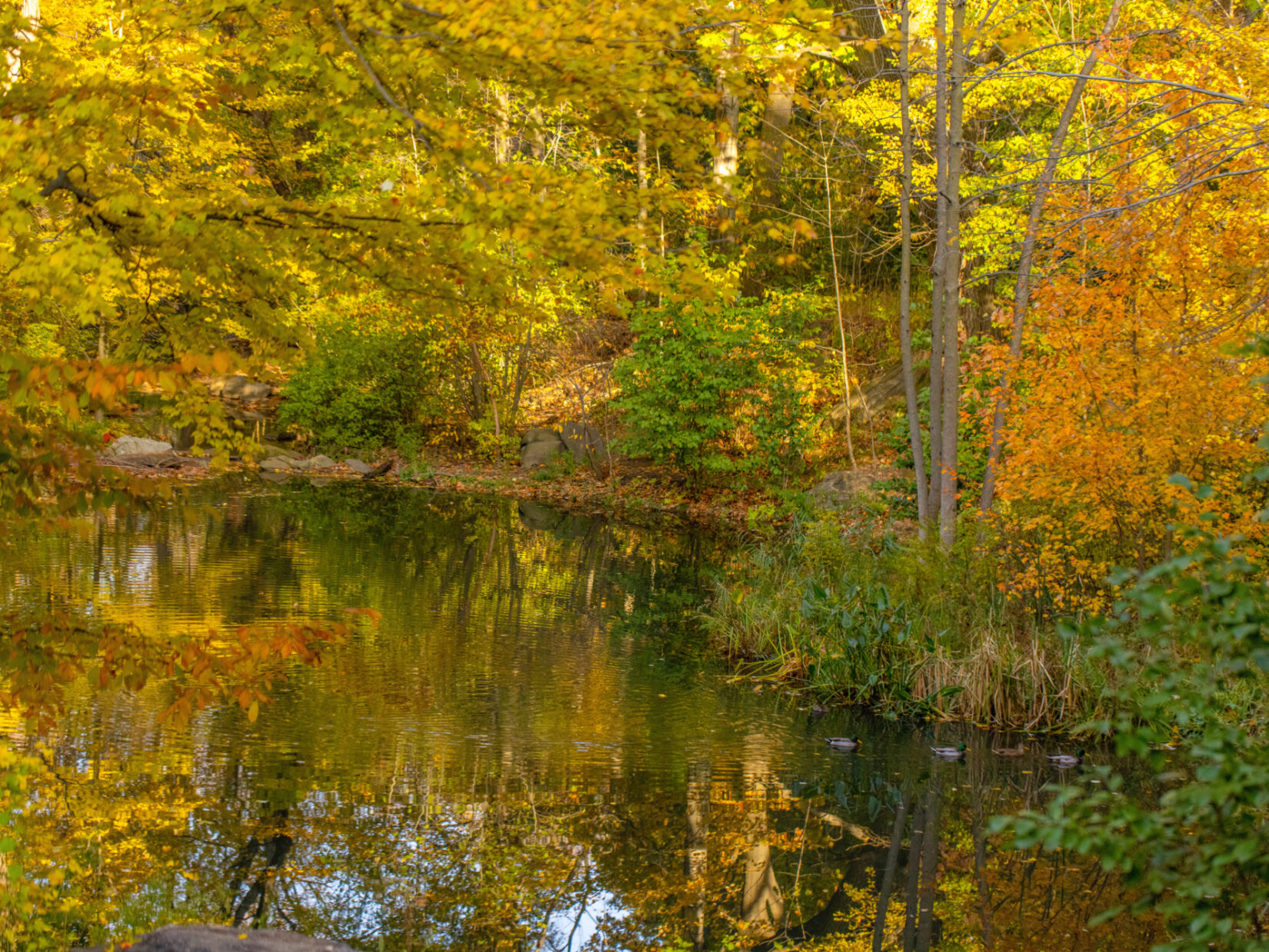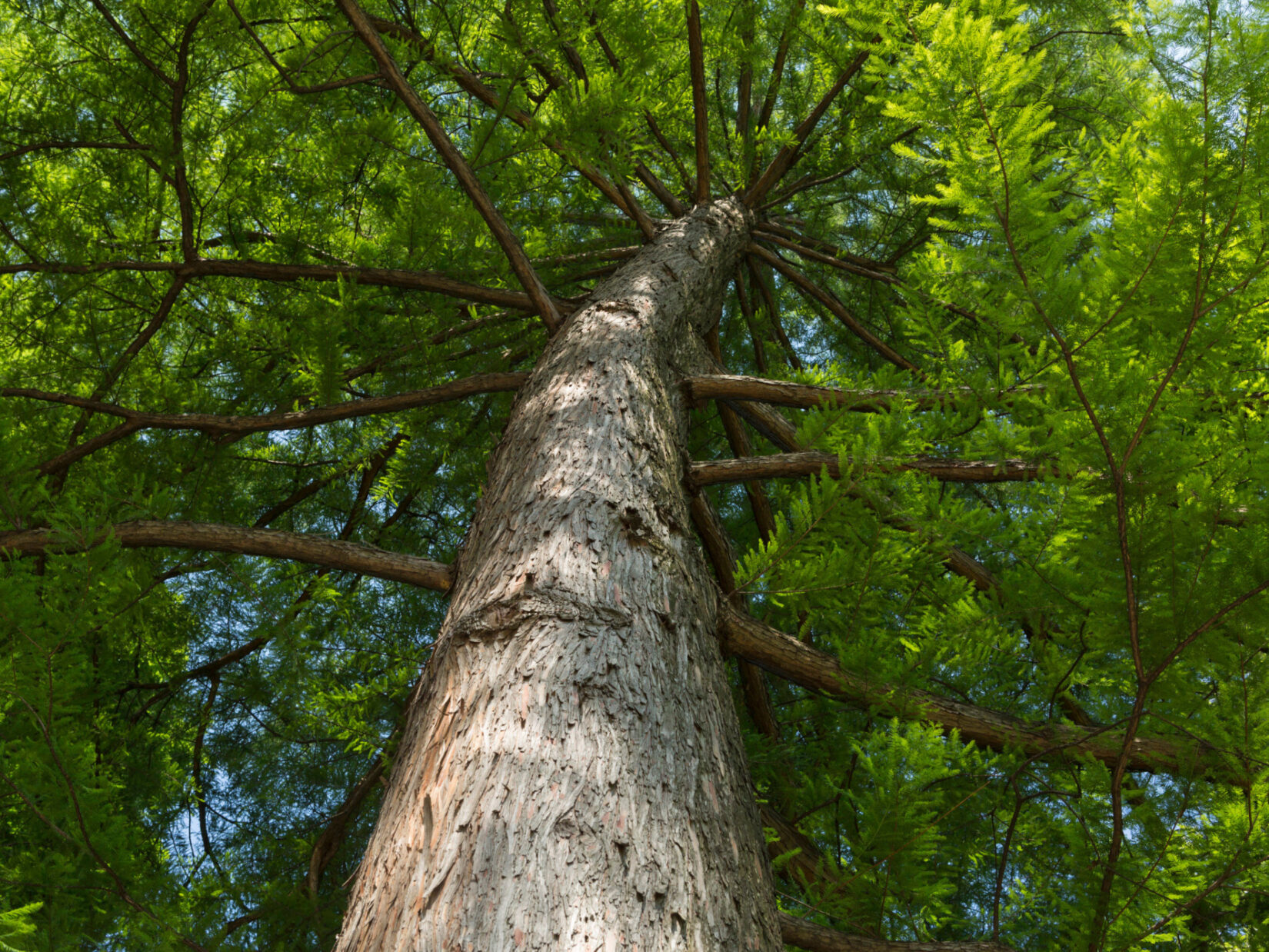The Ravine

The Ravine is the most well-known of the landscapes in the North Woods—Central Park’s largest woodland.
A densely wooded valley, its defining feature is the long, narrow watercourse called the Loch, known for its three waterfalls. (The word “Loch” is Scottish for “lake.”) Paths on both sides of the Loch provide views of the water, with some leading directly to its edge. One of the most peaceful spots in the Park, the Ravine’s soaring trees block out the surrounding cityscape and the sounds of small waterfalls muffle other signs of urban life. This is also a popular spot for birdwatching and other forms of nature observation.
Stroll in the Ravine
With meandering paths, a dense canopy of trees, and cascading waterfalls, the Ravine evokes the wilderness of the Adirondacks.
Park designers Frederick Law Olmsted and Calvert Vaux designed woodland landscapes to provide urban dwellers access to nature in the middle of a growing city. Inspired by upstate landscapes such as the Catskills and the Adirondacks, they hoped that those who could not afford a vacation to these places would be able to enjoy nature closer to home. Even though the Ravine looks natural, it was designed and built, like the rest of the Park. The designers did take some cues from the existing landscape and topography, creating the Ravine and Loch in an existing valley carved out by a meandering stream known as Montayne’s Rivulet. Park builders dammed and widened the stream, deepened the valley, and added plantings and features such as bridges and cascades.
Marking the entrances to the Ravine on both sides are impressive combinations of rustic stone arches and cascades: Glen Span Arch and cascade and on the west side and Huddlestone Arch and cascade on the east side.








